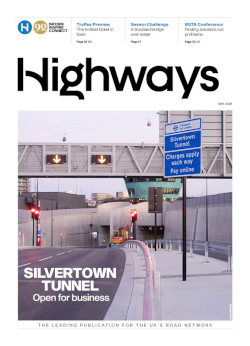The Government has selected the Atkins-led FLOURISH consortium as a winner of its multi-million pound research grant to fuel development in user-centric autonomous vehicle technology and connected transport systems.
The new programme, co-funded by the UK's innovation agency - Innovate UK, will focus on the core themes of connectivity, autonomy and customer interaction.
The three year project, worth £5.5 million, seeks to develop products and services that maximise the benefits of Connected and Autonomous vehicles (CAVs) for users and transport authorities. The Government hopes that, by adopting a user-centred approach, FLOURISH will achieve a better understanding of consumer demands and expectations, including the implications and challenges of an ageing society.
FLOURISH will address vulnerabilities in the technology powering CAVs, with a focus on the critical areas of cyber security and wireless communications. The consortium will aim to develop tools that enable vehicle manufacturers and transport authorities to create a safe and secure CAV network.
Dr John McCarthy, FLOURISH project lead, said, 'FLOURISH, though by its nature and design is both in-depth and wide reaching, is simple in its intention and focus. FLOURISH is about empowerment. We will aim to empower two distinct but overlapping areas of vulnerability, the person and the technical systems that it connects to. FLOURISH seeks to enhance mobility options for older people and those facing mobility challenges through the development of user-centric CAVs.'
Roland Meister, Head of Transport for Innovate UK added, "We're excited by the Flourish consortium's project and in particular, its focus on addressing cyber security vulnerabilities and the implications of connected and autonomous vehicle technology for an ageing population.
"This particular funding programme builds on previous government R&D investment into driverless cars and is a key part of a strategy to ensure that UK-based companies establish market-leading solutions, helping to build a strong supply chain for connected and autonomous vehicle technology and increase UK economic growth.'
The project aims to bring together industry and academic experts in the field of autonomous and connected systems, cyber security, data innovation and social research, and will further advance the South West region as an independent centre for the development and testing of CAVs.
FLOURISH, a multi-sector collaboration, is one of eight consortia that aims to help to advance the successful implementation of CAVs in the UK, by developing services and capabilities that link user needs and system requirements.
The following organisations are members of the FLOURISH consortium:
Atkins: lead partner providing project management, transport modelling and intelligent mobility expertise;
Age UK: a 'critical friend' to FLOURISH supporting the social research elements of the project;
Airbus Group Innovations: will offer its expertise in the technology areas of Model-based System Engineering, Cyber Security, Human-Machine Interfaces, Human State Monitoring, and Data Fusion;
Aiseedo: will provide artificial intelligence software that enables automated systems to make autonomous decisions and adapt to complex situations in real-time;
AXA: will provide insurance and legal expertise;
Bristol City Council and South Gloucestershire Council: will provide on-road trials support and drive local community engagement;
Bristol Robotics Laboratory: will provide expertise in CAVs, control and systems integration;
Designability: to work with users and beneficiaries to develop Human Machine Interfaces for use in a vehicular environment;
Imtech Traffic & Infra: to develop and conduct on-road demonstrations of technology that enables vehicle-to-infrastructure communication and intelligent network operation of CAVs
OPM Group: will provide research support relating to user needs and public acceptance;
TSS-Transport Simulation Systems: to develop a network operations model for modelling CAVs using the Aimsun traffic simulation software;
Transport Systems Catapult: to develop Human Machine Interfaces and provide support for simulated and real world testing;
University of Bristol: will develop secure wireless communication systems and support real-world testing; and
University of the West of England: will conduct research into user needs and experiences of CAVs and will be involved in the development of Human Machine Interfaces providing human factors expertise.





